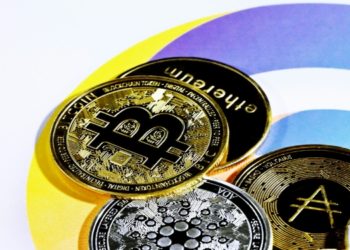As the world becomes increasingly digital, the question of whether or not the cryptocurrency will be the future of money has been raised. Cryptocurrency, also known as digital or virtual currency, is a type of money that is not regulated by any government or financial institution. Only time will tell if cryptocurrency will become the future of money. Keep reading to learn more about cryptocurrency and its potential.
What is cryptocurrency?
Cryptocurrencies are digital or virtual tokens that use cryptography to secure their transactions and control the creation of new units. They are decentralized, not subject to government or financial institution control. This makes them less susceptible to censorship or manipulation. You would need to use an exchange to trade, sell, or buy cryptocurrency. Cryptocurrencies are often traded on decentralized exchanges and can also be used to purchase goods and services.
The underlying technology behind cryptocurrencies is blockchain technology. Blockchain is a distributed database that allows for the secure recording of transactions across many computers. This creates a tamper-proof ledger that cannot be changed without consensus from the majority of participants in the network.
What is a cryptocurrency exchange?
Cryptocurrency exchanges are websites where you can buy, sell, or trade cryptocurrencies. Cryptocurrency exchanges come in many different shapes and sizes. Some exchanges only allow you to trade cryptocurrencies for other cryptocurrencies, while others allow you to trade cryptocurrencies for other assets, such as traditional currency or digital currencies. It is essential to do your research before choosing an exchange.
You need to consider the type of cryptocurrencies offered, the type of assets provided, the fees charged by the exchange, the security of the exchange, and the user-friendliness of the exchange. Cryptocurrency exchanges can be helpful tools, but they are also risky. Many exchanges have been hacked, and user funds have been stolen. As a result, it is essential to use a reputable exchange and to take steps to protect your accounts, such as using two-factor authentication or a wallet.
Two-factor authentication (2FA) is a security process that requires two forms of identification to log in to a system: your username and password, plus a second factor, such as a code generated by an authentication app or a physical token. A crypto wallet is a software program that stores private and public keys and allows users to send and receive digital currency and monitor their balance. Crypto wallets can be used to store Bitcoin, Ethereum, Litecoin, and many other digital currencies.
Is cryptocurrency the future of money?
There’s no doubt that cryptocurrency is becoming more and more popular. But is cryptocurrency the future of money? There are several reasons why cryptocurrency could become the future of money. Firstly, cryptocurrencies are digital and can be sent securely and quickly between users without needing a third party. This makes them ideal for payments and transactions online.
Secondly, cryptocurrencies are not tied to any particular country or bank, meaning they can be used anywhere in the world. And finally, cryptocurrencies are not regulated by governments or banks, meaning they are free from control and censorship. However, there are also several reasons why cryptocurrency may not become the future of money. Firstly, cryptocurrencies are incredibly volatile and can experience significant price fluctuations. This makes them risky and unpredictable to use as a form of currency.
Secondly, the cryptocurrency market is still relatively small and is not yet as widely accepted as traditional forms of currency. And finally, cryptocurrency is still relatively new and unproven, meaning there is a risk that it may not be sustainable in the long term. Overall, cryptocurrency is still in its early stages and has yet to be fully adopted by the general public. However, it does have the potential to become the future of money as it is more secure, efficient, and convenient than traditional forms of payment.
David Prior
David Prior is the editor of Today News, responsible for the overall editorial strategy. He is an NCTJ-qualified journalist with over 20 years’ experience, and is also editor of the award-winning hyperlocal news title Altrincham Today. His LinkedIn profile is here.




![7 Best POS Software in the UK [2026 Edition]](https://todaynews.co.uk/wp-content/uploads/2026/02/7-Best-POS-Software-in-the-UK-2026-Edition-360x180.png)






































































